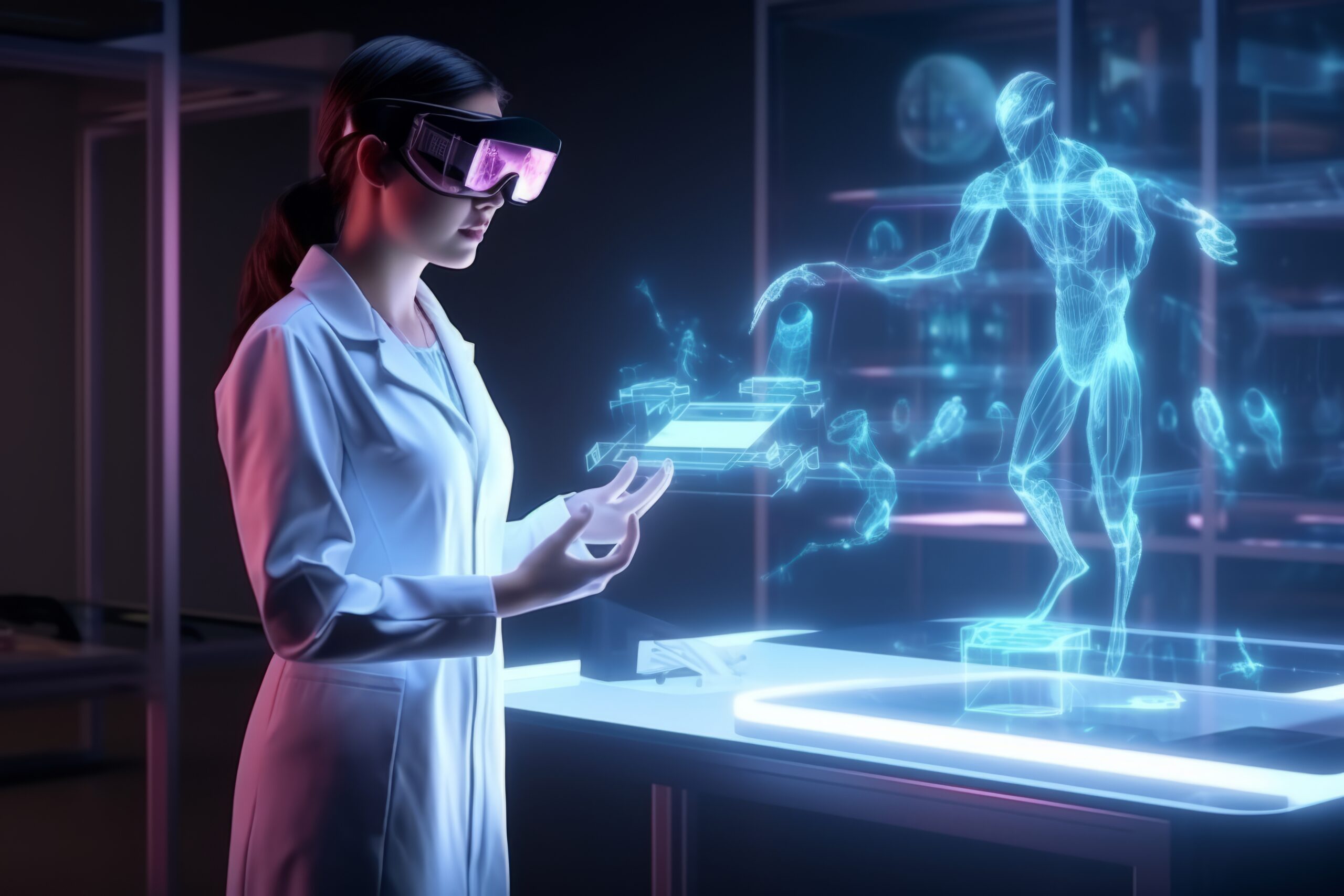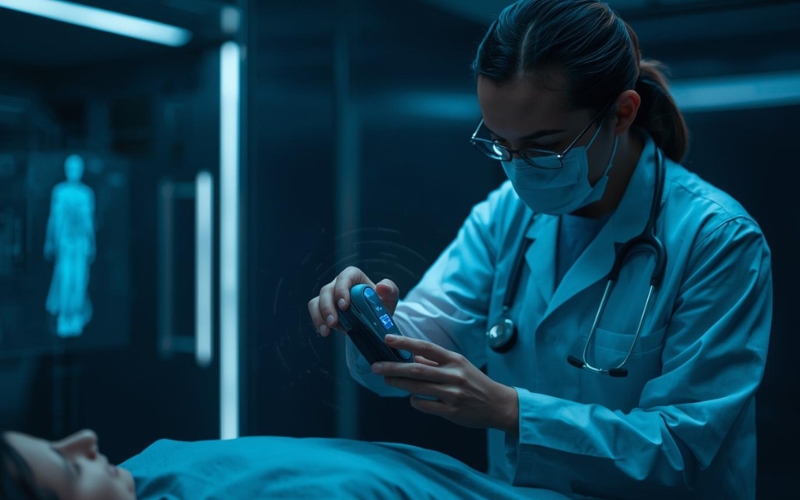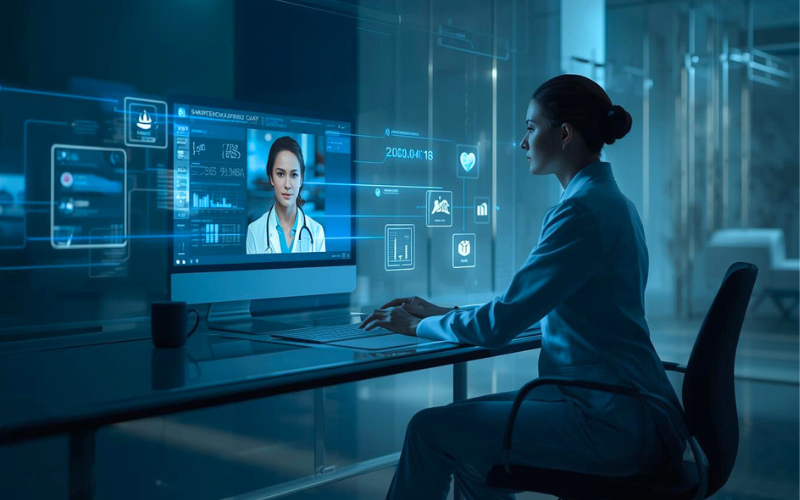Introduction: AR – A Game Changer in Healthcare
Augmented Reality (AR) is reshaping the med-tech industry by enhancing visualization, surgical precision, and medical training. By overlaying digital images onto real-world environments, AR enables more accurate diagnoses, improved treatment planning, and better patient education. This article explores the key applications of AR in med-tech and its role in the future of healthcare.
1. AR in Ophthalmology: Advancing Diagnosis and Patient Education
Simulating Eye Diseases for Better Understanding
AR technology allows both doctors and patients to experience simulations of vision disorders such as:
- Glaucoma: Patients can visualize how their vision will deteriorate over time.
- Age-Related Macular Degeneration (AMD): AR replicates blind spots and blurriness caused by AMD.
- Retinitis Pigmentosa: Demonstrates progressive peripheral vision loss to improve understanding.
IOL (Intraocular Lens) Simulation for Surgery
AR enhances cataract surgery by simulating various intraocular lens options, helping patients make informed choices:
- Toric IOLs: Illustrates astigmatism correction.
- Monofocal IOLs: Demonstrates single-distance focus lenses.
- Trifocal IOLs: Shows improvements in near, intermediate, and far vision.
2. AR in Cardiology: Preoperative Heart Visualization
AR is transforming cardiology by providing interactive 3D visualizations of a patient’s heart based on MRI or CT scan data:
- Detailed Structural Examination: Helps cardiologists analyze complex heart conditions.
- Precision in Surgical Planning: Reduces risks by offering a clearer preoperative view.
- Enhanced Patient Communication: Allows doctors to explain conditions in an accessible way.
3. AR in Medical Training: Revolutionizing Education for Future Doctors
Enhancing Learning and Retention
Medical universities are integrating AR into their curriculum to improve training:
- 3D Anatomy Models: Allows students to explore human organs in high detail.
- Surgical Simulations: Provides a risk-free, interactive environment for practice.
- Remote Learning Access: Enables students to interact with AR models from anywhere.
4. AR in Surgery: Enhancing Precision and Reducing Errors
Real-Time Augmented Guidance for Surgeons
AR is improving surgical outcomes by overlaying critical data during procedures:
- Increased Accuracy: Displays blood vessels, nerves, and tumors to minimize errors.
- Shorter Procedure Times: Reduces uncertainty, making surgeries more efficient.
- Improved Surgical Navigation: Enhances robotic and minimally invasive surgeries.
5. Challenges and Future of AR in Med-Tech
Current Challenges:
- High Implementation Costs: AR technologies require significant investment.
- Regulatory Barriers: Standardizing AR applications for healthcare remains complex.
- Training Requirements: Medical professionals need specialized training to use AR effectively.
Future Trends:
- AI-Enhanced AR: Combining AI with AR will enable real-time, precision diagnostics.
- Wearable AR Devices: Smart glasses and headsets will enhance accessibility.
- Expanded Telemedicine Applications: AR will facilitate real-time remote surgical guidance.
Conclusion: The AR Revolution in Healthcare
Augmented Reality is transforming healthcare by enhancing diagnostics, education, and surgical precision. As adoption grows, AR will play a crucial role in the med-tech industry, improving patient care and medical training worldwide.





